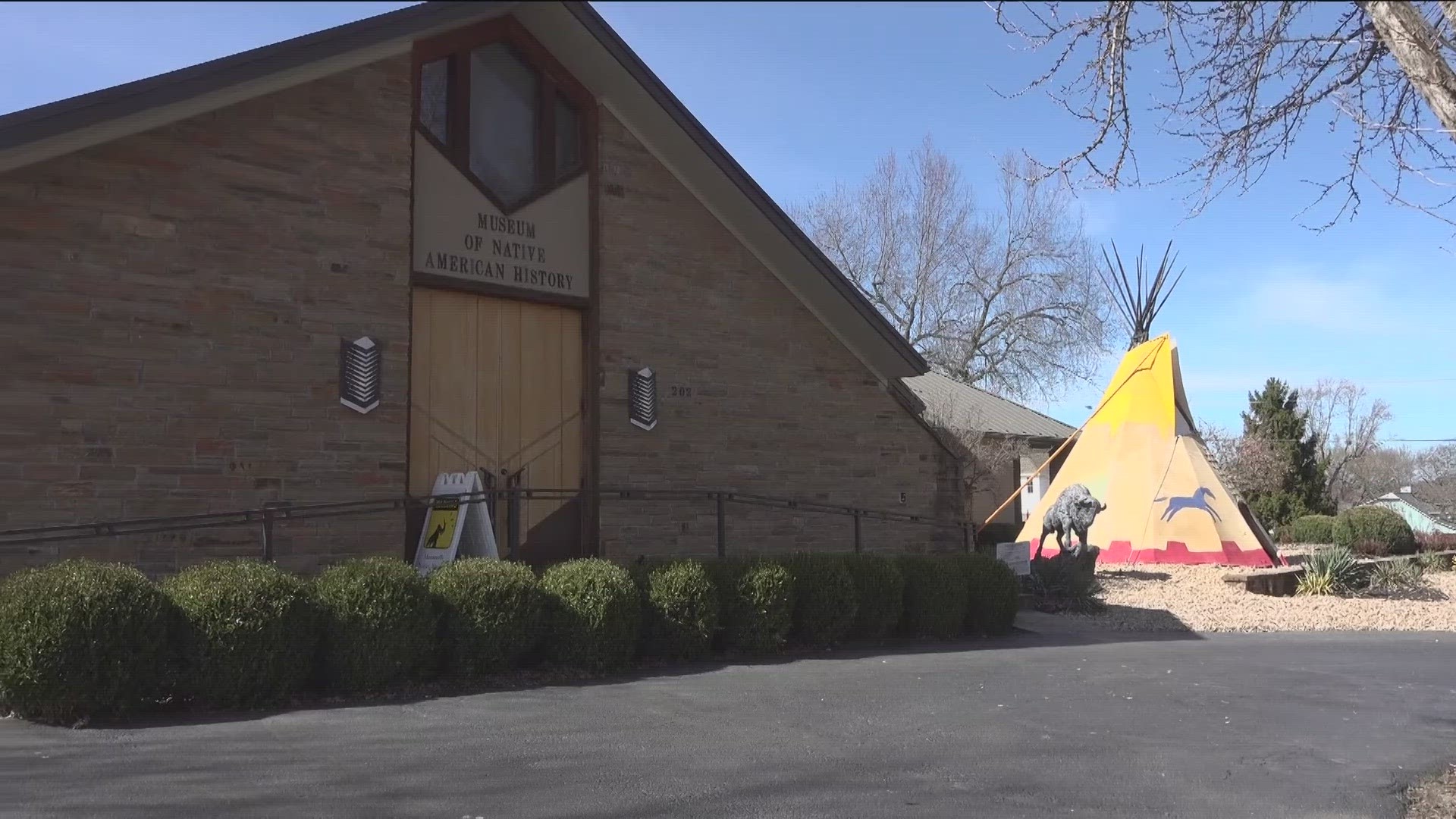BENTONVILLE, Ark. — While millions prepared to look at the sky for the Great American Eclipse, many others did all they could to avoid it.
Some Native American Tribes don't celebrate the eclipse. Alaynna Littlefeather works at the Museum of Native American History (MONAH) and is a member of the Navajo Tribe. She explained that they treat the time of the eclipse as a mourning.
“One of the biggest forms of taboo in Navajo culture is death. That's something that we don't really acknowledge or like to talk about. And when it does happen, it's dealt with very quickly. And an eclipse is essentially a disturbance or the death of the sun. And he's considered a father figure in Navajo culture," Littlefeather explained.
Littlefeather described the sun as the reason "why we have everything," including plants and a harvest.
"For that split second, the sun has died. And when he comes back, he is reborn in some way," she said.
Littlefeather and others with the same belief system mourn the loss of that life source during the eclipse.
"We're essentially mourning his disappearance at this time, so we're trying to be very dormant in our regular routine," Littlefeather said. "I'll be following my traditional practices and making sure that I'm not doing any heavy household work, any work in general, making sure that I'm not eating or taking any water during this time."
Littlefeather says each side of her family followed the beliefs differently, either being more strict or lenient. She says sometimes she'd watch TV as a child during the time of mourning, but other times she would be screamed at by her elders for any movement.
"Growing up in a very close community with a lot of Navajos, everyone knows all these rules," she said. "So you don't necessarily feel alone or isolated in these instances."
Littlefeather explained that growing up in a very close community with a lot of Navajos, everyone she knew followed the rules. Therefore, she didn't feel alone or isolated in her belief. It was only after she moved out of her community that she faced differences.
"I was attending school in New York, and there was an eclipse happening and I had to shoot my professor an email saying, 'Hey, I cannot attend today's class because there's an eclipse happening,'" Littlefeather said. "The fact that I can't look at these things, makes me a little disappointed. But I honestly don't mind following my traditions because they're there for a reason."
Littlefeather recommends anyone posting about eclipses on their social media to add some form of trigger warning. For anyone sharing her belief, she explains seeing an eclipse even on their phone could infringe on their beliefs.
"There are a lot of tribes who do believe that eclipses are seen as taboo, so we should try to remain respectful towards those," Littlefeather said.
For this year's eclipse, she's "running away" to Wisconsin where she will continue to follow her traditions despite being outside the path of totality.
Watch 5NEWS on YouTube.
Download the 5NEWS app on your smartphone:
Stream 5NEWS 24/7 on the 5+ app: How to watch the 5+ app on your streaming device
To report a typo or grammatical error, please email KFSMDigitalTeam@tegna.com and detail which story you're referring to.

